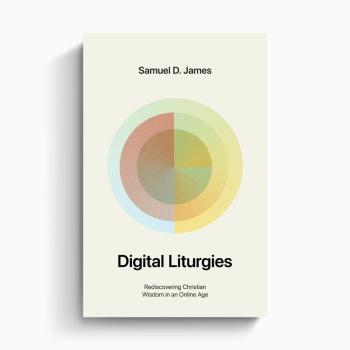Review of A Peculiar Glory by John Piper
John Piper’s A Peculiar Glory: How the Christian Scriptures Reveal their Complete Truthfulness is unlike any other book I’ve read on the subject of whether or not the Bible is reliable and accurate. More traditional approaches like those of F.F. Bruce, Josh McDowell, or Richard Bauckham argue that Scriptures are historically correct because they stand all the tests for accuracy that honest historians can throw at them. The problem in this approach should be clear: is it really the case that before we can know the Scriptures are reliable we have to be professional historians? In A Peculiar Glory, Piper argues that even the average Christian can in fact know with certainty that the Bible is trustworthy without having to get a PhD in history along the way.
Specifically, Piper argues that the Bible is a special book seen in a special way by believers. A Peculiar Glory relies heavily on Jonathan Edwards’ masterpiece The Religious Affections and the idea found in the following passage from John Calvin. It’s a lengthy passage, but it is worth following:
Let it therefore be held as fixed, that those who are inwardly taught by the Holy Spirit acquiesce implicitly in
Scripture; that Scripture, carrying its own evidence along with it, deigns not to submit to proofs and arguments, but owes the full conviction with which we ought to receive it to the testimony of the Spirit. Enlightened by him, we no longer believe, either on our own Judgment or that of others, that the Scriptures are from God; but, in a way superior to human Judgment, feel perfectly assured—as much so as if we beheld the divine image visibly impressed on it—that it came to us, by the instrumentality of men, from the very mouth of God. We ask not for proofs or probabilities on which to rest our Judgment, but we subject our intellect and Judgment to it as too transcendent for us to estimate. This, however, we do, not in the manner in which some are wont to fasten on an unknown object, which, as soon as known, displeases, but because we have a thorough conviction that, in holding it, we hold unassailable truth; not like miserable men, whose minds are enslaved by superstition, but because we feel a divine energy living and breathing in it—an energy by which we are drawn and animated to obey it, willingly indeed, and knowingly, but more vividly and effectually than could be done by human will or knowledge. Hence, God most justly exclaims by the mouth of Isaiah, “Ye are my witnesses, saith the Lord, and my servant whom I have chosen, that ye may know and believe me, and understand that I am he,” (Isa. 43:10). (Institutes I.7.5)
In other words, the Bible is in the truest sense of the phrase “self-authenticating,” because when Christians look at it we don’t just see ink on the page, or historical events, or generous platitudes, we see the glorious character of God shining through. That is how the Christian knows the Bible is true, not because some historian has told us so. We have read the Bible and seen the truth there.
This defense of the truth of Scripture has a great strength and a great weakness. Its strength is that it allows the Bible to rest on itself. As Christians we believe that the Bible is the final and ultimate authority in the lives of believers and of the church, which makes it problematic for us to rely for its defense on worldly scholarship. (This is not to say that worldly scholarship has no place!) If we truly believe that the Scripture alone is the final authority, we can hardly turn to academia for confirmation of anything fundamental, let alone one of the core tenets of our faith. In that sense, Piper might really be giving us little more than a shorthand means of gauging our spiritual health relative to our view of the authority of Scripture.
And yet, Piper’s approach has a weakness as well: it has functionally no apologetic value. In my experience, the sorts of people who are asking about how we might defend the truth of Scripture are usually interested either in outreach to non-believers, or in buttressing existing faith using external evidence. You will find neither of these in A Peculiar Glory. And, for what it’s worth, that’s probably fine. Piper isn’t writing the book to be an apologetic text in that sense anyway. His point is to be pastoral rather than evangelistic. So do be warned that if you read this book thinking you’ll get ammunition to put in your Gospel gun, you’ll come away disappointed. If you read this book with the goal of loving God and His Word more, you’ll be encouraged.
All of that to say, A Peculiar Glory is a book worth reading for those who want to think more devotionally about the inspiration and authority of Scripture.
This book was provided by the publisher. I was not required to write a positive review. For that matter, I don’t know that I was required to write a review at all. At least, I don’t remember specifically requesting the book. Maybe I did and my memory is beginning to fail as I age.
Dr. Coyle Neal is Assistant Professor of Political Science at Southwest Baptist University in Bolivar, Missouri. He is also cohost of the City of Man podcast.













